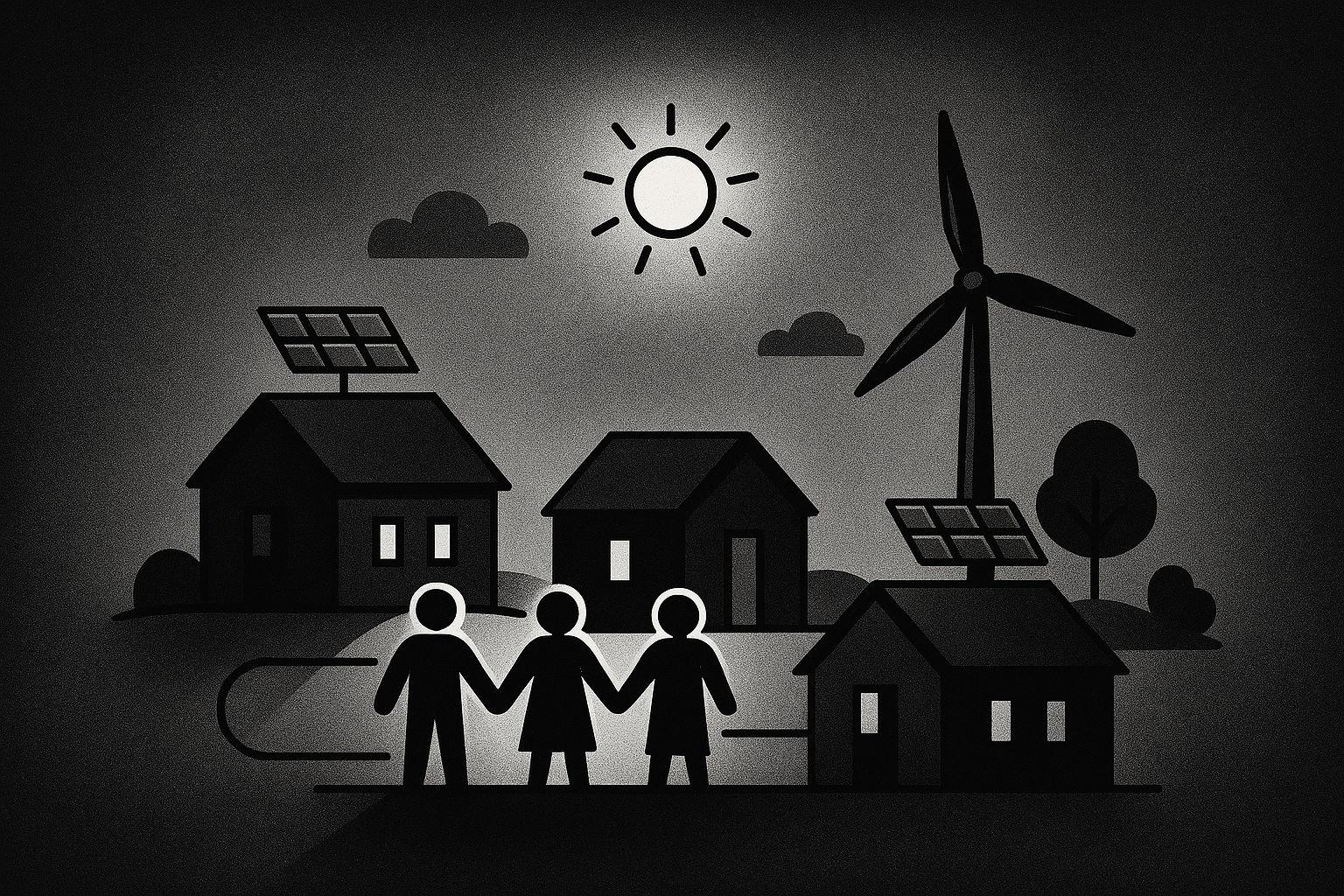Energy communities are an innovative way of generating, managing, and consuming energy that puts people at the center. Unlike centralized models, energy communities are made up of citizens, local organizations, small businesses, or ethnic communities that join forces to produce and manage their own energy—typically from renewable sources like solar, wind, water, or biomass.
This concept took shape in Europe in the 1970s, following the oil crisis and later the Chernobyl nuclear disaster in 1986. In countries like Denmark and Germany, citizens began forming cooperatives to build their own wind and solar farms. Over time, this approach gained traction and became embedded in European legislation, especially through the Renewable Energy Directive (RED II) and the Internal Electricity Market Directive (IEMD), which formally introduced Renewable Energy Communities (REC) and Citizen Energy Communities (CEC).
Today, energy communities are growing in countries like the United States, Japan, Chile—and more recently, Colombia.
Legal Framework in Colombia
In Colombia, energy communities were formally introduced in Law 2294 of 2023 (National Development Plan 2022–2026), specifically in Article 235, which amended Law 1715 of 2014 to allow users to group together in collective schemes for energy generation, commercialization, or efficient use.
Since then, Colombia has made rapid progress in developing a regulatory framework:
- Decree 2236 of 2023: Partially regulates Article 235, outlining permitted activities (collective self-generation, distributed generation, efficient use), access to public infrastructure, and flexible organizational structures (such as associative figures that don’t require registration with the Chamber of Commerce).
- Resolution 40509 of 2024 (Ministry of Mines and Energy): Establishes the National Registry of Energy Communities and sets criteria for accessing public funds—particularly for vulnerable communities.
- Resolution UPME 501 of 2024: Sets capacity limits (up to 5 MW) and defines geographic dispersion rules for collective generation activities.
- National Strategy for Energy Communities (2024): A public policy document that lays out a five-phase cycle (selection, viability, structuring, implementation, and consolidation) to support the creation and sustainability of energy communities nationwide.
- Energy Communities Management Manual: A practical guide to implementing and sustaining projects, including tools, templates, and success indicators.
- CREG Draft Resolution 701 051 of 2024: Expected to be issued in the coming months, this resolution will define the technical and economic conditions for integrating energy communities into the national grid. Its issuance will be key to unlocking the full potential of these initiatives.
Why Energy Communities Matter
Energy communities offer a unique opportunity to democratize energy. They reduce reliance on large utilities and bring multiple benefits:
- Lower energy costs for users
- Community empowerment, especially in rural or remote areas
- Promotion of clean technologies and emissions reductions
- Local job creation and stronger community networks
- Sustainable models for local economic development
In Colombia, energy communities are eligible for public funding (from the national budget, royalties, FENOGE, and international cooperation), with priority given to communities in peace territories, ethnic regions, or areas with high levels of energy poverty.
A Model for the Future
Colombia is building a stronger legal, institutional, and technical foundation to support energy communities as part of its just energy transition. While challenges remain—such as ensuring long-term financial sustainability, technical training, and ongoing support—the pathway is clear.
At Expertiseplus, we’re committed to supporting this transformation by connecting stakeholders, sharing knowledge, and helping local initiatives grow. We believe in clean, fair, and community-powered energy—by the people and for the people.

